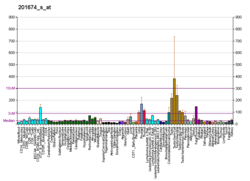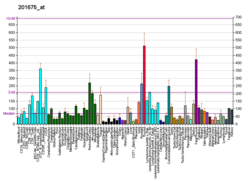Top Qs
Timeline
Chat
Perspective
AKAP1
Protein-coding gene in the species Homo sapiens From Wikipedia, the free encyclopedia
Remove ads
A kinase anchor protein 1, mitochondrial is an enzyme that in humans is encoded by the AKAP1 gene.[5][6][7]
Remove ads
Function
The A-kinase anchor proteins (AKAPs) are a group of structurally diverse proteins that have the common function of binding to the regulatory subunit of protein kinase A (PKA) and confining the holoenzyme to discrete locations within the cell. This gene encodes a member of the AKAP family. The encoded protein binds to type I and type II regulatory subunits of PKA and anchors them to the mitochondrion. This protein is speculated to be involved in the cAMP-dependent signal transduction pathway and in directing RNA to a specific cellular compartment.[7]
Remove ads
Interactions
AKAP1 has been shown to interact with:
References
External links
Further reading
Wikiwand - on
Seamless Wikipedia browsing. On steroids.
Remove ads







